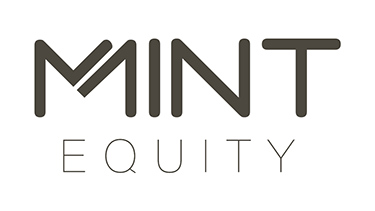Updated 24 March 2017 at 4.10PM
Experts say the move by NAB and Westpac to increase owner-occupied mortgage rates out of cycle of an RBA cash rate increase could pressure the Reserve Bank of Australia (RBA) to make another cash rate cut.
Westpac made the decision to increase their home loan rates for both investors and owner-occupiers last week following a similar move by NAB to reprice its home loan rates. This included a 25-basis point increase (0.25%) for investors and a 7-basis point (0.07%) increase for owner-occupiers. Westpac’s rate changes will see a 28-basis point (0.28%) increase for investors and a 3-basis (0.03%) point increase for owner-occupiers.
Both NAB and Westpac have blamed the increases on narrowing profit margins and higher costs for banks.
“Experts advise that now is a good time for those with a mortgage to consider fixing at least part of their home loan.”
The official cash rate has remained on hold at a historical low of 1.5% and with many experts believing a rate rise won’t happen until later this year, it appears the banks have taken matters into their own hands by raising rates out of cycle.
The market was caught off guard by the rises and while the changes to investor rates are expected to have a minimal impact on spending in the economy, the changes to owner-occupier rates could cause agitation according to economists.
However, if banks increase owner-occupier rates by 25-basis points (0.25%) or more then the RBA might offset this with another cash rate cut.
Will other big banks follow suit?
The rate increases by NAB and Westpac have set off a wave of rate rises, with the other majors and some 2nd tier lenders following suit.
Experts advise that now is a good time for those with a mortgage, particularly in Sydney where loans run into the hundreds of thousands of dollars, to consider fixing at least part of their home loan.
The US Federal Reserve recently raised interest rates, which has increased the cost of borrowing money in offshore markets, a key source of funding for Australian banks.
This, along with the rises by NAB and Westpac, could start a new cycle of interest rate rises. Rates of business and personal loans are therefore also expected to rise.
ANZ
ANZ have announced today that they will introduce new variable rates for new lending with interest only repayments, an increase of between 0.11% and 0.20% depending on the product. Variable interest rate for all investor home loans and ANZ Equity Manager accounts will increase by 0.25%. Owner-occupier borrowers who repay principal and interest on their standard variable home loan remain unchanged.
CBA
CBA have announced today that Principal and Interest (P&I) interest rates for Variable Rate Home Loans will increase by 3 basis points (0.03%) for Owner Occupied home loans and 24 basis points (0.24%) for Investment home loans. Interest Only interest rates for all Variable Rate Owner Occupied home loans by 25 basis points (0.25%) and Investment Home Loans by 26 basis points (0.26%). These changes are effective for new and existing customers from Monday 8 May 2017.
Macquarie Bank
Macquarie Bank announced on Wednesday that interest rates for new customers would increase by 0.05% for owner occupiers and 0.25% for investors, effective 23 March 2017. Existing customers who settled prior to 23 August 2015 will also be impacted by the interest rate increases, with the changes effective from 13 April 2017.
Citibank
Citibank will increase the interest rates on all variable rate home loan products by 0.09% p.a. for new (inclusive of pipeline applications) and existing customers, effective 28 March 2017.
Newcastle Permanent
Newcastle Permanent has increased their fixed interest rates by 0.10% effective Monday 27 March. Variable interest rates for owner occupier loans remain unchanged.
Historically smaller lenders, such as ING, Adelaide Bank, Bendigo Bank and Suncorp, have followed the ‘big four’ on rate rises so we will likely see rates lifted across the market.
Banks called out
ASIC chairman Greg Medcraft called out the banks during a panel discussion at the ASIC Forum in Sydney and called the level of competition in the mortgage market disgraceful.
“I think the residential mortgage market is disgraceful in this country. I just still can’t believe that people accept to pay whatever the bank says [the rate] is,” he said.
Mr. Medcraft explained that corporations got rid of prime lending years ago and said corporate borrowers have since leaned towards rates that use a margin over a benchmark. He also said corporate customers are treated differently to residential mortgage borrowers.
“The banks say that they are increasing their rates because of increasing regulatory costs and that they are going to charge customers more. But they don’t do that in the corporate sector because they can’t – they have a locked-in margin above a benchmark. I do think competition in our mortgage market would be a good thing for consumers,” he concluded.


